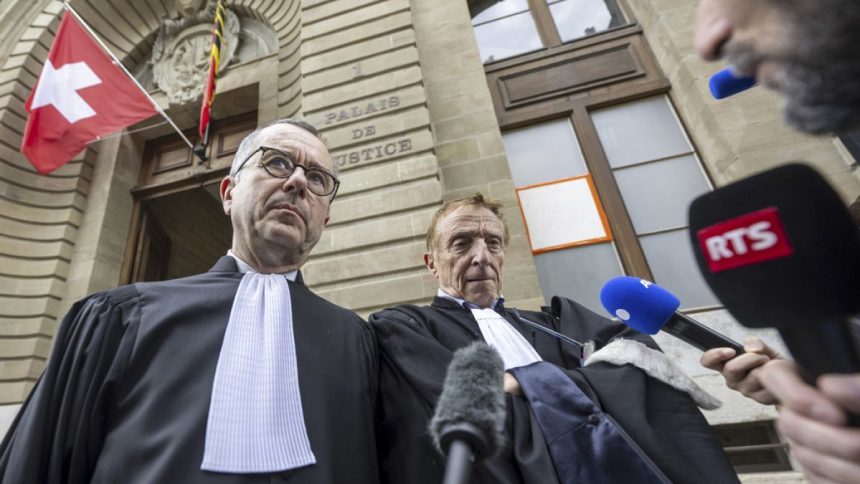The family were found guilty of seizing their workers’ passports, barred them from going out and made them work up to 18 hours a day.
Prosecutors had said that their workers had described a “climate of fear” instituted by Kamal Hinduja. They were forced to work with little or no holiday time, and worked even later hours for receptions. They slept in the basement, sometimes on a mattress on the floor.
But the Swiss court dismissed more serious charges of human trafficking against 79-year-old tycoon Prakash Hinduja; his wife, Kamal; son Ajay and daughter-in-law Namrata on the grounds that the workers understood what they were getting into, at least in part.
The four received between four and four and a half years in prison.
The workers were mostly illiterate Indians who were paid not in Swiss francs but in Indian rupees, deposited in banks back home that they couldn’t access.
Lawyers representing the defendants said they would appeal.
Robert Assael, a lawyer for Kamal Hinduja, said he was “relieved” that the court threw out the trafficking charges but called the sentence excessive.
“The health of our clients is very poor, they are elderly people,” he said, explaining why the family was not in court. He said Hinduja’s 75-year-old wife was in intensive care and the family was with her.
A fifth defendant — Najib Ziazi, the family’s business manager — received an 18-month suspended sentence.
Commenting on the case, one Indian MP posted: “What we don’t have in India but desperately need: equality before the law.”
Last week, it emerged in court that the family had reached an undisclosed settlement with the plaintiffs. Swiss authorities have seized diamonds, rubies, a platinum necklace and other jewellery and assets in anticipation that they could be used to pay for legal fees and possible penalties.
Along with three brothers, Prakash Hinduja leads an industrial conglomerate in sectors including information technology, media, power, real estate and health care. Forbes magazine has put the Hinduja family’s net worth at around 18.6 billion euros.
The family set up residence in Switzerland in the 1980s, and Hinduja was convicted in 2007 on similar charges. A separate tax case brought by Swiss authorities is pending against Hinduja, who obtained Swiss citizenship in 2000.
In this case, the court said the four were guilty of exploiting the workers and providing unauthorised employment, giving meagre if any health benefits and paying wages that were less than one-tenth the pay for such jobs in Switzerland.
Euronews











